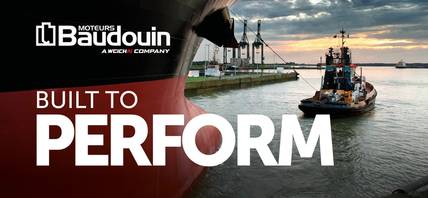How to Work with Your Insurer When Experiencing a Loss
Marine insurance – just like health, automobile and homeowner’s insurance – can be a valuable safeguard in case something unexpected happens. And when something bad happens, it provides reassurance that you have assistance in place to help get back to business quickly.
In the maritime industry, there is a high likelihood that your businesses will experience a loss at some point. Vessels run aground, cargo containers get damaged, and fires occur in shipyards. These are just some of the types of situations that can – and do – happen routinely to maritime owners and operators.
Knowing these risks exist, you should ask yourself two questions to make sure your business is prepared: First, what can I do to mitigate the risk of loss before an incident occurs? And second, how should I work with my insurer when something does happen?
When You Have a Claim
Imagine that you are a towboat or tugboat operator hired to move other vessels and cargo for customers throughout the country. If your boat were rendered inoperable, you would stand to lose thousands of dollars a day during the period of time that the vessel is out of service. In an industry where margins are tight, this type of situation could cause serious harm to your business’ bottom line.
Here are four steps you can take to ensure that your response to a loss does not make matters worse, but instead helps you get your business back on track:
Action Step #1
Find an agent who understands your business
If you’re the towboat operator, your needs will be different from the company that builds and maintains vessels. This is why you want to work with a specialist agent who has experience in your particular maritime niche, as opposed to an insurance agent who is a generalist.
Action Step #2
Get the right coverage
Marine insurance – or any type of insurance – is not a one-size-fits-all solution. Businesses often have multiple policies with multiple coverages, placed with several carriers. This can be difficult to navigate for a business owner trying to coordinate coverage for a particular loss. Depending on the incident, there may be a gap in coverage, potentially leaving your business on the hook for substantial expenses. Working with a single carrier for all your insurance needs helps minimize gaps in coverage and avoid the potential for bureaucratic hassles, since the single carrier can view the entire scope of coverage with you.
Action Step #3
Develop a contingency plan
It’s never too late to think “what if?” What if someone slips and falls on my vessel? What if a hurricane damages my fleet and destroys my cargo? What if a fire started by a worker in a neighboring shipyard causes all the electricity to go out and disrupts my computer systems? In addition to carrying the right type of marine coverage and limits, it’s key to plan for the things you hope never happen. Perhaps it’s arranging to charter someone else’s tug until you can get your vessel repaired, or buying a generator and backing up all of your important company records in the virtual cloud. You may also want to consider purchasing business continuity insurance to help recover any potential revenue losses you may have. Having a plan in place can help you take charge when you need to most.
Action Step #4
Know how to work with your insurance company
Here are several “Do’s & Don’ts” on how to maximize your relationship and interactions with your insurance carrier to help you get back to business:
o Do contact your insurer right away. By waiting days, weeks – or months – after an incident, you risk losing valuable evidence or relying on faulty memories.
o Do notify all insurers (this includes marine, property, casualty, etc.)
o Do take pictures of the scene. Note the damage, the location, the weather, any cargo onboard and the people involved.
o Do understand who the various players are in the claims process:
– Your agent – may have significant involvement in the claim.
– Surveyor – an expert that will visit the vessel or site to assess the damages.
– Claim Professional – an employee of the insurance carrier who handles the claim investigation, the appraisal of damages, liability, the amount of coverage and recommends a settlement.
– Independent adjuster – like a Claim Professional, he or she investigates insurance claims, but unlike a Claim Professional, he or she may work for several insurance carriers.
o Do consider meeting with insurance company claim representatives to create a course of action before you need to make a claim. Having these relationships in place can really help to expedite matters in the event of a claim.
o Don’t start or authorize repairs until the insurance company has inspected the damage and given you their position on what is payable.
o Don’t throw anything away. This includes cargo manifests, receipts and passenger/worker logs.
o Don’t admit liability (even if you think it was your fault). Leave that up to the insurance investigators and adjusters to determine. Admitting liability can cause big problems on a claim.
Creating Beneficial Relationships
Purchasing insurance is about having peace of mind – it’s the protection against the unexpected that could destroy a business in an instant. By taking these four action steps, you can save important time and money by having your claim processed as soon as possible and with fewer delays.
Along with having the right coverages, a smooth claims process also depends on having a solid relationship with your agent and insurance carrier. This means working with professionals who specialize in the maritime industry, who know your business and its risks, and who are committed to your company’s success.
(As published in the April 2014 edition of Maritime Reporter & Engineering News - http://magazines.marinelink.com/Magazines/MaritimeReporter)















